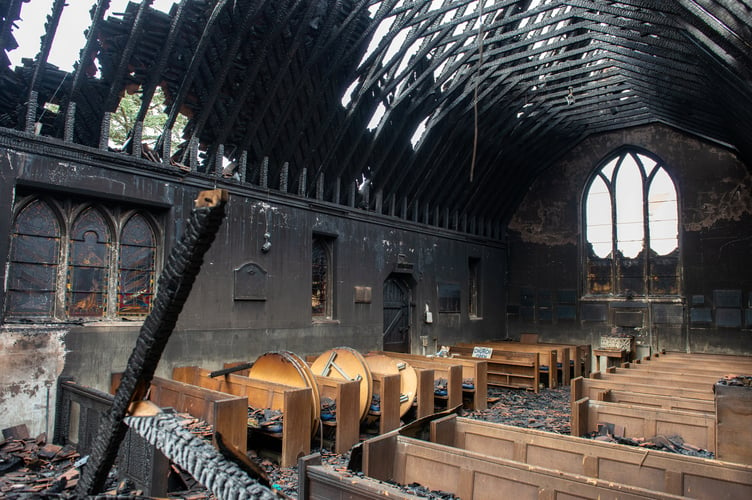ECCLESIASTICAL Insurance is calling on churches to carry out important safety checks following a surge in electrical fires.
The specialist insurer issued the warning after claims for electrical fires hit a six-year high in 2022. The number of incidents fell during 2020 and 2021 due to the pandemic, but have since risen to levels not seen since 2017.
As churches diversify and adapt their buildings for wider community use, the range of electrical equipment used on premises has increased and evolved in recent years.
Research by Ecclesiastical in 2021 found that almost three in five (57 per cent) of churches had invested in new technology.
This included laptops, new lighting equipment, microphones and tablets – potentially putting additional strain on often ageing electrical systems.
Th insurance company says this can ultimately result in overloaded circuits and an increased risk of fire.
In July last year, All Saints Church in Mudeford, Dorset was decimated by an electrical fire caused by a fault in the church.
More than 50 firefighters were called out to tackle the blaze, but despite their efforts to bring the fire under control large portions of the church and adjoining hall were destroyed.
The fire caused large scale damage to the church roof, meaning the building has been out of use since, having a profound impact on the congregation and local community.
In response to the rise and to prevent further incidents, Ecclesiastical’s Risk Management team has produced guidance for churches, including a list of typical causes of electrical fires.
These include:
• Overloaded circuits
• Damaged leads
• Multiple adaptors and extension leads
• Unchecked or unmaintained wiring equipment
• Portable appliances
• Accumulation of dust around cooling fans or equipment
• Lighting if placed close to a combustible material (for example, art displays, notice boards, stage sets).
Portable appliances such as iPads and laptops should be switched off when not in use and never left on charge unattended. Many of these devices have lithium-ion batteries which can short circuit or fail, leading to fires so it is important to follow risk guidance and manufacturer’s instructions.
Ecclesiastical discourages the use of portable heaters however, if electrical heaters are still being used, as well as ensuring they are well maintained, it is vital that they are also not left operating unattended or sited close to any combustible items such as curtains.
Jo Whyman, risk management director at Ecclesiastical Insurance, said: “As we saw at All Saints Church, the impact of an electrical fire can be devastating – leading to the tragic loss of heritage properties and the artefacts they hold, but also the upset and disruption to the local community.
“We’re encouraging churches to carry out essential checks and to make sure that fixed electrical systems are properly designed, installed and maintained by competent electricians to current standards. It’s also really important to carry out inspections on any electrical appliances, such as portable heaters or audio-visual equipment.
“If customers need any further advice they can call our risk advice line on 0345 600 7531 or email us at: [email protected] and one of our experts will call them back.”
For more information and advice from Ecclesiastical’s risk management team, visit: ecclesiastical.com .




